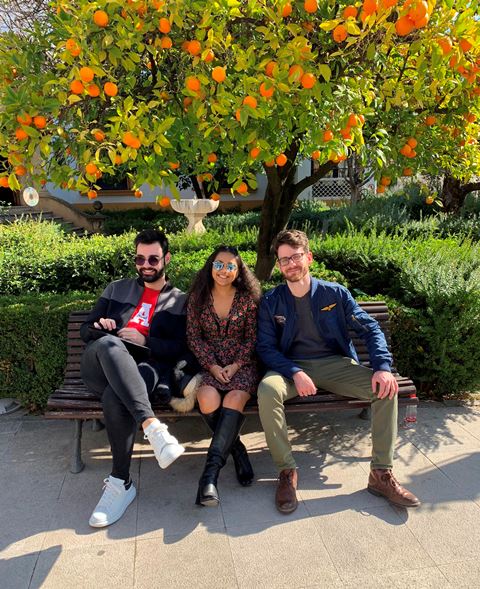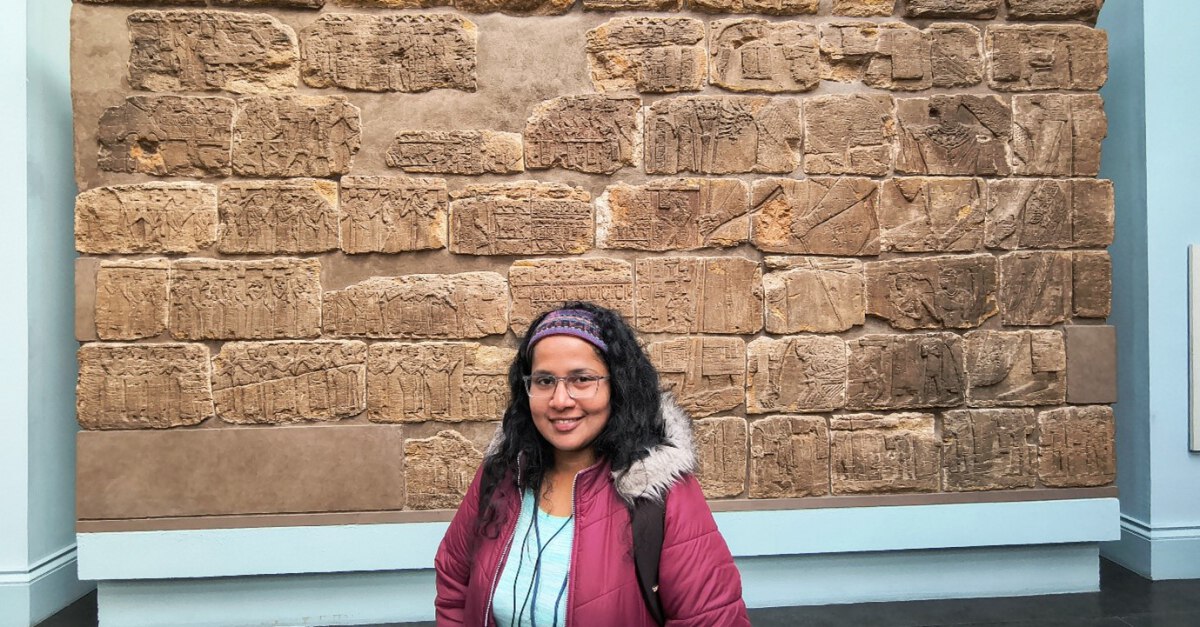Going Cross Cultural
29/03/2019

Sunshine, colours, good food and smiles – this is how I define Spain. From the classrooms at Cranfield University, we flew to the benches under the ripe orange-laden trees. Openness and acceptance were in the ambience of our surroundings. Where else could have been a better place to learn about “Cross-Cultural Management”?

Indians, Greeks, Chinese, Italians, Palestinians and French came together to dissect the Spanish culture. While walking around the beautiful amalgamation of Jewish, Catholic and Islamic architecture in La Alhambra, we divulged into the beauty of each other’s ethnicities. The Granada tour delivered by a Spanish tour guide turned more interesting when she was amused by my Indian attire. And soon we found ourselves lost in the co-incidental similarities between all the cultures present amidst us. This was the reason why Granada was the perfect destination to understand Cross Cultural Management. Especially, because at some point in time it was a city which witnessed the co-existence of Jews, Christians and Muslims. Irrespective of some highly atrocious results of cultural clashes in history, today we could sense the beauty in the cultural blend that those civilizations left behind them.
While the cultural lessons seeded the idea of perspective augmentation, the true mingling of cultures happened over Tapas, the typical Spanish drinks and food combination. I was fascinated to learn about the history behind Chinese names, as Indian names themselves come with well thought-of meanings behind them. What was further amusing was to learn about the different dialects in our cultures. I realised that at some point all of us are equally lost and oblivious of our cultures as the others. To a French who does not know Hindi, India would seem to be a place where he/she could not converse. However, even for me who is an Indian and knows Hindi, I too would be ill at ease in South India. This would be because the languages and dialects of Southern India are far from similar to Northern India. Similarly, my Chinese colleagues were as clueless as me when it came to Taiwanese. Whereas, the Taiwanese colleagues could help me understand both Chinese and Taiwanese. This created some sense of belonging amongst us.
I believe that I learnt the true “cross-cultural” management after living the different cultures alongside my multi-ethnic colleagues. This field trip accounts for the best experiences of my life. The learnings from this module, along with the memories, shall always be etched in my heart and mind.
Categories & Tags:
Leave a comment on this post:
You might also like…
From Sri Lanka to Cranfield: How a Commonwealth Scholarship transformed my environmental engineering journey
Hi, I’m Kavithanjali Uthayashangar and I’m here to tell you about my journey into environmental engineering. It began with a simple but powerful motivation: a desire to understand how engineering can ...
Inside the Air Transport Management MSc: Classes, assignments, and group project work
What’s it really like to study Air Transport Management at Cranfield? Adit walks us through a typical day, assignment expectations, and the excitement of hands-on group projects. This is the second of three blog ...
Using Factiva to research a company
If you’re tasked with researching a company, your first port of call might be to search Fame or EBSCO Business Source Complete. Your immediate reaction might not be to look at Factiva. However, for larger ...
How do I write a secondary reference … in the NLM style?
Secondary referencing is used when you’re reading a work which includes a quotation from another author, and you – the researcher – can’t obtain the original source. We always advise, where possible, to try to ...
Reaching new heights: How a Global Excellence Scholarship fuelled my aerospace dreams
Leaving my home in India to pursue an MSc in Aerospace Dynamics at Cranfield University was a leap of faith. Hi, I’m Oliza Kachroo and as an international student, the transition ...
How do I reference…when delivering a presentation?
Just as you cite and reference sources in written work, you should also acknowledge the sources you use or quote in oral presentations. Citing your sources in presentations provides your audience with information about the ...






